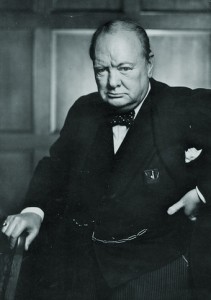
Iffy thinking. A bad temper. A shortsighted view of the branding process.
That’s a boss we heard about from a business friend of ours.
Our friend is a marketer with more than a few accomplishments to his name. Lead generation is second nature to him.
But he’s had it with his job. Fed up with the boss.
Still, to be fair, ‘iffy thinking’ describes his boss on a bad day.
Normally he’s okay when things are going smoothly.
Of course, that applies to most everyone, doesn’t it? Who isn’t even-keeled when everything is going to plan?
The thing is, this boss has no abilities when things are going wrong.
He doesn’t function on a bumpy road. When projects go sideways good sense goes with it.
In the thick of difficulties his chief skill is to lay the blame elsewhere.
Who needs a fair weather leader like that?
Opposite to that you have Winston Churchill’s undercover operatives in the dark days of WWII.
With a brief to ‘Set Europe Ablaze’, Churchill sought those who could succeed behind enemy lines in impossible situations.
He needed leaders who could turn the tide on peril.
Isn’t that the kind of thing you’d value for your company?
Isn’t the capacity to function in a crisis the mark of a true leader?
With Churchill in mind, you might want to look at a business management book by two ex-Navy SEALS.
The SEALS are nothing if not cool-headed and capable when it comes to the crunch. They flourish in perilous situations.
You could say they’re past masters of leadership and turnarounds.
Normally for books on business leadership you’d turn to those like Peter Drucker, W. Edwards Deming, Jim Collins, and Warren Bennis.
But the book, Extreme Ownership. How U.S. Navy SEALS Lead and Win, stopped us.
It’s an engaging read by Jocko Willink and Leif Babin.
You get a picture of the SEALS in combat. Then in each chapter military leadership skills are directly related to business applications.
In that way the book takes a different approach to getting you involved and getting you to think.
It concentrates your thought process on direction, teamwork, solidarity, smarter decision making, management and achievement.
Equally, it’s an education for the times when your efforts don’t go to plan. When everything goes awry and the way forward is unclear.
Our friend with the iffy thinking boss was impressed with the book.
Here’s betting Winston Churchill would have been as well.
Share with us. Leave your comment below. Thanks for reading Whybetonto.com. Regards, Steve Ulin LinkedIn: http://linkd.in/1Bey3Jl